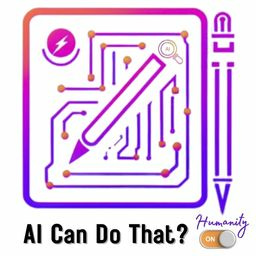I Was Set on My Future—Then One Conversation Rerouted My Entire Life
How a push I didn’t want shaped the career I never planned

Recently,
wrote about an experience with her high school guidance counselor, and it made me think about my own many years ago. Mine was slightly different from hers, but the echoes were there.I was set to graduate in the top 10% of my high school class, number seven overall, and had already been accepted into a Big Ten public university. Still, I was looking forward to moving away for college when a routine trip to my guidance counselor changed everything.
He brought up the local community college. Every school district, he explained, picked the top-performing student and awarded them two years of free tuition. I told him “No Thanks”. I was happy with where I was going and I wasn’t looking to go anywhere else. He kept pressing. To get him to stop, I filled out the paperwork and figured I was done with it.
Sometimes we give up on our gifts
At that time, I dreamed of becoming a writer. I had thought about law school and spent time seriously looking into it. No matter what, writing stayed at the center of it all. Or so I thought.
I had always gotten encouragement in that area. In eighth grade, my drama teacher told me I had a gift for character development. In my sophomore and junior years, my English teacher, Mr. Warner, said I had a flair for writing and gave me consistent praise. I won a poetry contest and received the high school English award my junior year, which completely shocked me.
I had plenty of support for my writing ability and I earned straight As in most classes. But it wasn’t enough to change the fact that my counselor kept pushing me toward community college and that scholarship.
Wouldn’t you know, not long after filling out the paperwork I had long forgotten about, I received a letter in the mail. I had been selected with two years of paid tuition.
I sat on that news for days.
I felt guilt, frustration, and the weight of an adult decision I didn’t want to make. Deep down I knew I couldn’t walk away from it. My family was working class, my mother was a stay-at-home mom, and we had no college fund. When I told them, my dad agreed that if I took the two-year scholarship, he would save enough to cover my last two years at the university.
The twist I didn’t expect
It turned out to be a blessing in disguise. At community college I had two English professors who gave me a strong foundation in writing. One of them even kept a couple of my papers to share with future classes, which felt amazing.
I did transfer to my Big Ten university, graduated with high honors, went on to earn a master’s in counseling, and later a PhD in educational leadership. My graduate advisor still uses my dissertation as a model in her class. I know because I occasionally see it downloaded. No one reads those for fun.
My writing was consistently recognized. Yet I didn’t pursue it as a profession.
Somewhere along the way I dropped all my initial career goals and shifted into psychology. Looking back, I know exactly why. I was trying to understand my dysfunctional family and my own experiences. At the time, all we had were self-help books, which I read more than my share of. There was no internet, no social media.
Trauma, the way it’s defined today, didn’t exist, and you certainly weren’t allowed to talk openly about any of it. Eventually, I found my professional way into education, working with students..
My career detour
I fell into advising almost by accident. I spent nearly 20 years in higher education, 15 of those as an advisor. For many years my caseload was 1,000 students or more. To provide some context here, the average advisee load is approximately 300.
I never bought into the idea of busy work and was always on the lookout to make processes more efficient. Others weren’t as enthusiastic about that as me. Workflow changes were continually met with resistance. I’m talking about things that improved the working environment like:
Upgrading paper forms to digital
Moving to an online appointment scheduler
Even using dual monitors
From years of running on constant high alert to handle the pushback, I could no longer deny what was happening. It wasn’t just stress but systemic burnout in a toxic environment. The sad part? The work itself fit me perfectly. I was good at it. I loved working with students, helping them clarify their goals and finding more effective ways to move forward.
But structural challenges at every turn made it impossible to keep doing the work well without losing myself. After years of fighting it at every level, I was mentally done. So I walked away.
Rediscovering myself
I didn’t realize how deep the burnout went until a couple of years later. Only then did I understand how much I had lost by staying in that dynamic for so long. But leaving gave me the space to reconsider the dreams I had set aside many years before.
I started writing again. At first, on Medium, where I built a leadership publication that’s grown to nearly 13,000 followers in just over a year. Now on Substack, and I post on LinkedIn because we all like a challenge, right?
I realized I was circling back to what my teachers and professors had seen in me from the beginning. The irony was clear. What I set aside at 18 had become my new focus decades later.
Coming full circle with AI
Now I combine my 20 years of advising experience with my love of writing and my obsession with AI. I have built programs to help students and parents learn AI literacy. I believe it has to be done because schools are years behind.
I recently wrote about Ohio State University mandating AI in the curriculum starting in 2029. That is four years away. Students are experimenting with it now, often for personal reasons. This isn’t theoretical anymore because 72% of teens have already tried out AI companions, and more than half interact with them on a regular basis.
Parents often underestimate just how common it is.
A survey from the Digital Education Council, published in Campus Technology found 86% of students already rely on AI in their studies, with more than half engaging with it at least weekly. But without understanding its limitations and risks, they won’t know what to look out for.
If you had told me two or three years ago that I would be working with students again, I would not have believed you. But the difference is that now I have expertise in education, and I can give them more than just help with majors and career choices. I can help them understand a technology to prepare them for the future that even the school system hasn’t figured out yet.
I didn’t leave advising behind. I reframed it on my own terms. The job was never the problem. The environment was. And now I’m in a position where I can take all of that accumulated knowledge and put it into practice in ways that feel meaningful.
Unfinished business
Encouragement, doubt, and opportunity all play roles in shaping our paths. Sometimes the people who underestimate us the most hand us the biggest opening to prove them wrong. The support and reassurance don’t always land until you are ready to claim it, and that can mean decades later.
What you set aside in youth can be precisely what you circle back to later in life. Only this time, you’re ready.
© 2025 Bette A. Ludwig: All rights reserved
Author Spotlight
We’re so grateful to
for allowing us to share her story here on Code Like A Girl.Bette is a higher ed expert teaching real-world AI skills for college students and adults. She runs a program that helps students and parents learn how to use AI smartly, spot bad information, and build practical skills. You can DM her directly on Substack or visit her website for more info: www.betteludwig.com.
If you enjoyed this piece, we encourage you to visit her publication and subscribe to support their work!
Join Code Like a Girl on Substack
We publish 2–3 times a week, bringing you:
Technical deep-dives and tutorials from women and non-binary technologists
Personal stories of resilience, bias, breakthroughs, and growth in tech
Actionable insights on leadership, equity, and the future of work
Since 2016, Code Like a Girl has amplified over 1,000 writers and built a thriving global community of readers. What makes this space different is that you’re not just reading stories, you’re joining a community of women in tech who are navigating the same challenges, asking the same questions, and celebrating the same wins.
Subscribe for free to get our stories, or become a paid subscriber to directly support this work and help us continue amplifying the voices of women and non-binary folks in tech. Paid subscriptions help us cover the costs of running Code Like A Girl.





The work Bette is doing now to help kids decide what to do at school is really cool. My daughter and I tried some of her Guidance Counselor GPTs and they were really good and brought some clarity for my daughter.
It is so interesting how you shaped your interests and paths together and made them work. So inspiring!